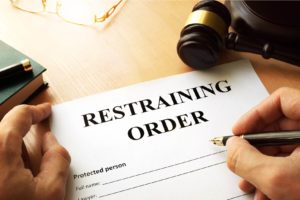We are a full year from the onset of the Covid-19 Pandemic, which prompted lockdown orders, and being isolated at home is still the norm. With business and school closures and a general fear of being in public, many people continue in isolation. Unfortunately, we know that domestic violence flourishes when victims are isolated. While social isolation has increased, so have stressors. Individuals are experiencing elevated stress as a result of having to make new decisions, the strain of economic decline and an extreme amount of stress related to health concerns. Abuse often comes from a place of needing power and control. The added stressors outside of the abuser’s control can cause an escalation of the abuse.
Domestic Violence is a pattern of physical, emotional, verbal, and sexual abuse, which includes, but is not limited to, threats, intimidation, isolation, and/or financial control. It can also include violence against children, parents, or the elderly. Domestic violence can happen to anyone irrespective of age, race, gender, religion or sexual orientation. Domestic violence affects people of all educational levels and socioeconomic backgrounds.
In New Jersey an individual is protected by the Prevention of Domestic Violence Act if he/she is 18 years of age or older, or is otherwise an emancipated minor, and who has been subjected to domestic violence by a spouse, former spouse, or any other person who is a present or former household member. A person will also be protected by the Act if he/she has been subjected to domestic violence by one of the following: a person with whom the victim has a child in common; a person with whom the victim anticipates having a child in common, if one of the parties is pregnant; or a person with whom the victim has had a dating relationship.
If you are a victim of Domestic Violence in New Jersey, the first step is to obtain a Temporary Restraining Order (“TRO”) against your abuser. Due to the Covid-19 Pandemic the procedure for obtaining a TRO has changed but the Courts are still working hard to ensure that victims are protected. The courthouses are primarily operating remotely; however, a victim can still go into the courthouse during normal operating hours if necessary. The Family Division in each county will have a telephone number posted on their website to contact the Court to apply for a restraining order via phone. If the need arises for a TRO after regular operating hours, an individual can contact their local police department to obtain one. The victim can choose the county in which he/she resides, the county where the Defendant lives, where the act of violence took place or in the county where the victim is seeking shelter.
As indicated in its name, a TRO is temporary. Once the Court has entered a TRO, they will schedule the matter for a Trial to determine whether the restraining order should be made permanent. This is called a hearing for a Final Restraining Order (“FRO”) and typically occurs within 10 days of obtaining a TRO. Accordingly, upon obtaining a TRO, it is a good idea for the victim to reach out to an attorney to ascertain their rights and the best manner in which to proceed with the subsequent steps to obtain an FRO.
All final restraining order trials in New Jersey take place in the New Jersey Superior Court, Family Part and will be decided by a judge. As with all trials, it is the plaintiff’s burden to prove that a final restraining order should be issued. As the Plaintiff in the Domestic Violence trial, the victim must prove in court by a preponderance of the evidence that an act of domestic violence occurred and that there is a need for future protection.
Escaping an abusive situation is daunting but there are resources available. Each county has a designated program to help guide a victim of domestic violence. To obtain additional information on the program or for assistance obtaining a TRO, you can call the Statewide Domestic Violence Hotline at 1-800-572-SAFE (7233). The Hotline is confidential and free of charge. Attorney Lindsey Moskowitz Medvin, Esq. is also available to help guide you and ensure you feel safe and protected.
If you are the victim of domestic violence or if a restraining order has been entered against you, you can reach out to Lindsey Moskowitz Medvin, Esq. at lmedvin@szaferman.com or call (609) 275-0400 to assist with your matter.






